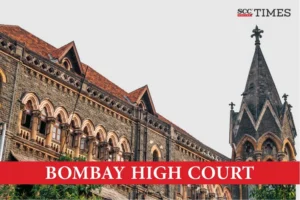Bombay High Court: The present application was filed for quashing proceedings in a case pending before the Judicial Magistrate First Class, Ahmedpur, Latur arising out of FIR dated 02-08-2018 registered with Police Station, Ahmedpur, for the offence punishable under Section 66-C and 67 of the Information Technology Act, 2000 (‘IT Act, 2000’). The Division Bench of Vibha Kankanwadi* and S.G. Chapalgaonkar, JJ., stated that it could not be concluded without any evidence that applicant would have been the only person behind creation of fake Facebook accounts, from which alleged defamatory posts were made in respect of Respondent 2, his family members including applicant’s wife. The Court opined that print of screenshots of Facebook would not prove that the said post was created from an alleged fake account.
In the present case, FIR was filed by Respondent 2-applicant’s brother-in-law who informed that applicant had created a fake Facebook account in the name of Minal Basavraj Swami and Chandra Surnal and through the said fake Facebook account, applicant defamed Respondent 2 and his family members, especially applicant’s wife as there was discord between applicant and his wife.
The Court stated that there was no proper investigation, only the screenshots of Facebook were submitted along with statements of two witnesses. The Court opined that only based on this material, it could not be said that the Facebook posts were created by applicant. The Court stated that there was no evidence against applicant and thus it would be a futile exercise to ask applicant to face the trial.
The Court opined that the case was investigated in total ignorance of provisions of law and by a person, who appeared to have not undergone training in detecting cybercrime. The Court stated that since it was specifically alleged that two Facebook accounts were fraudulently created, then the Investigating Officer ought to have taken help of an expert to see from which IP address those accounts were created, and whether any such electronic device of the said IP address was with the accused.
The Court opined that print of screenshots of Facebook material would not prove that the said post was created from an alleged fake account and even if it was accepted that there was dispute between applicant and his wife, and the alleged post had a defamatory material in respect of Respondent 2, his family members including applicant’s wife; still, it could not be concluded without any evidence that applicant would have been the only person behind creation of such fake Facebook accounts.
The Court referred to Section 66-C of the IT Act, 2000 which deals with ‘Punishment for Identity Theft’ and states that “anyone who, i) fraudulently or dishonestly uses another person’s electronic signature, password, or any other unique identification feature; ii) he shall be punished with imprisonment of either description for a term which may extend to three years and shall also be liable to fine which may extend to rupees one lakh”. The Court stated that from the contents of FIR, it could not be gathered that there was any other evidence to show that applicant had used the electronic signature, password, or any other unique identification feature of any other person.
The Court noted that applicant’s wife had pardoned him and thus, it would be a futile exercise to ask applicant to face the trial. Thus, the Court allowed the application, quashed and set aside the charge sheet, i.e., proceeding pending before the Judicial Magistrate for the offence punishable under Sections 66-C and 67 of the IT Act, 2000.
[Mahesh Shivling Tilkari v. State of Maharashtra, 2024 SCC OnLine Bom 3497, decided on 22-10-2024]
*Judgment authored by: Justice Vibha Kankanwadi
Advocates who appeared in this case:
For the Applicant: S.J. Salunke, Advocate
For the Respondents: V.K. Kotecha, APP for Respondent 1 and J.R. Patil, Advocate for Respondent 2

